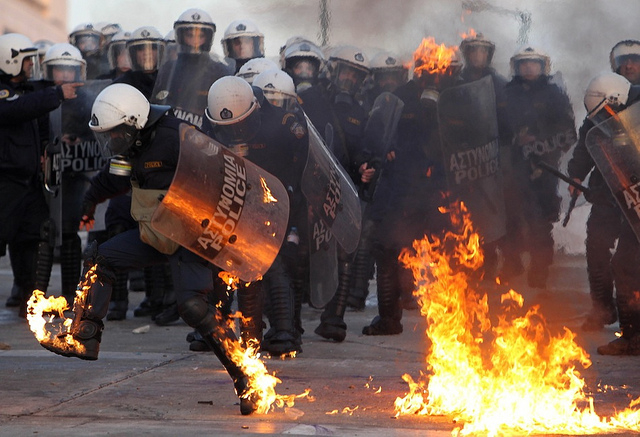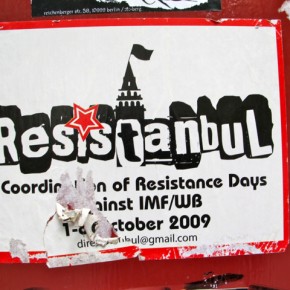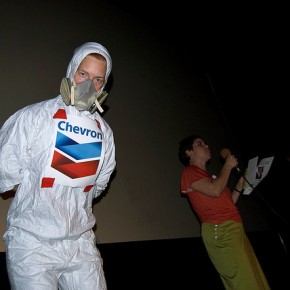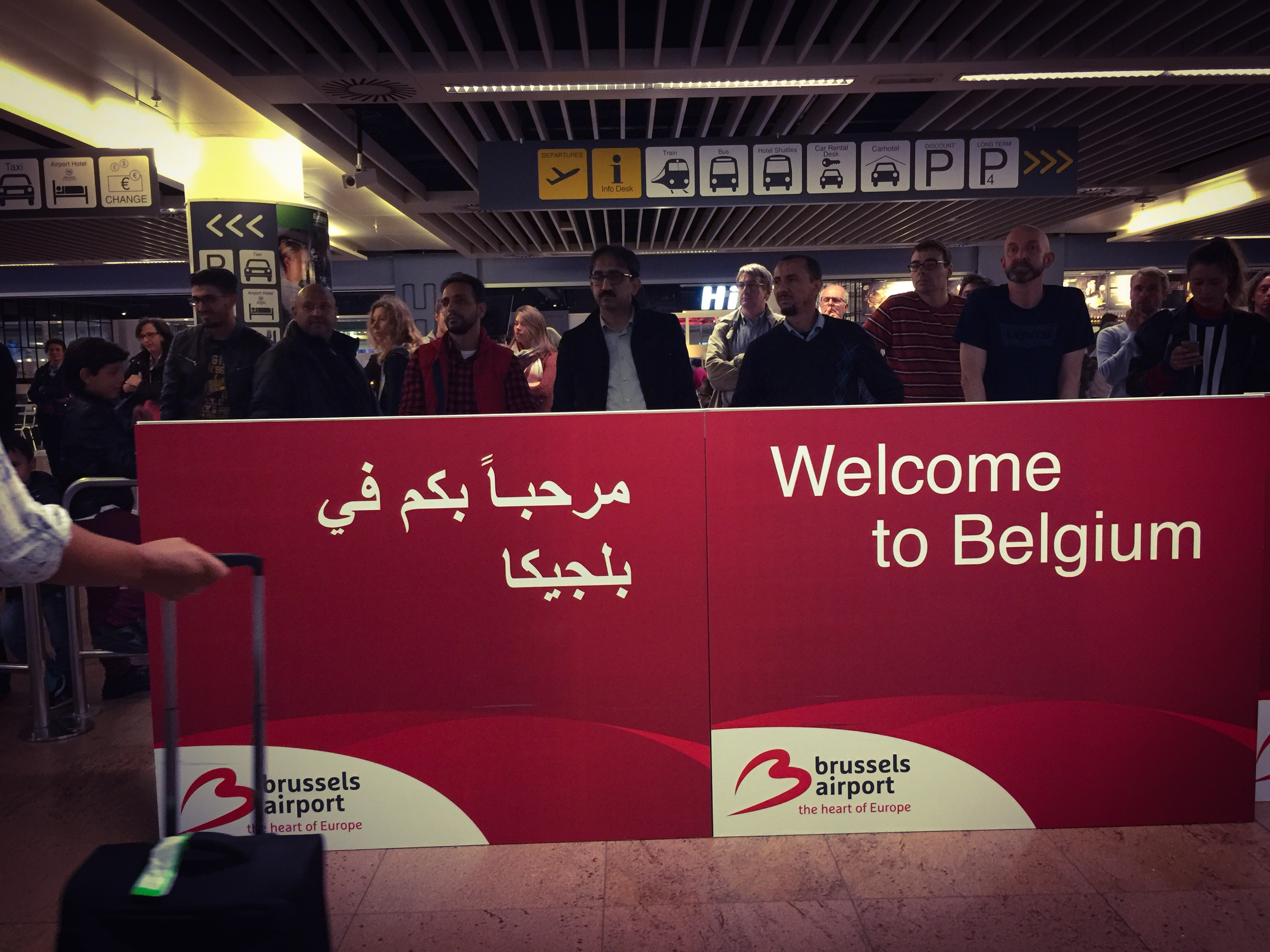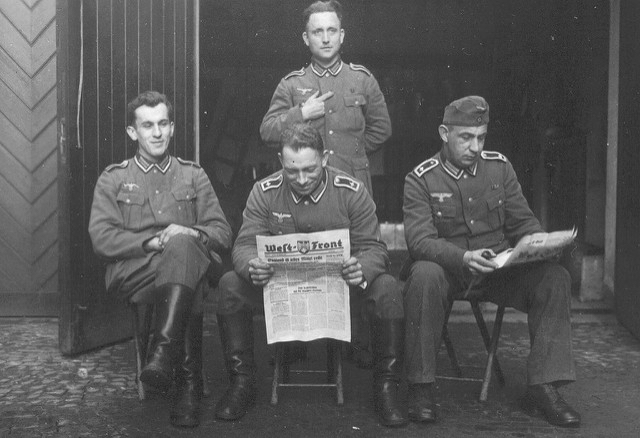Greece is in the middle of a Great Depression. Overall unemployment stands at 22%, while unemployment among young workers is at 50%. The far right has made a return to parliament in the form of the neo-fascist Golden Dawn party, who openly use Nazi salutes. Anarchist riots occur almost weekly. Enter the fiery hardcore punk of Sarabante.
Sarabante’s Remnants LP came out last year on the Southern Lord label. The Athens band’s album is at once sweepingly elegiac and brutally no-nonsense. Sarabante’s recorded sound is layered and melodic but retains a violence in its sheer, pummeling d-beat power. Harmonic guitar leads are used to provide rousing moments of respite between tidal wave assaults of gloomy thrash. As with many neo-crust bands operating in Sarabante’s sonic milieu, there are shades of atmospheric black metal in the guitarists’ predilection for using minor notes and chords. Production is key: Heavy, down-tuned guitars and a thundering bass find plenty of breathing room at the bottom end of the spectrum. The lower notes, bass drum, and toms are well-defined and serve as a firm foundation for the incendiary and weighty heft of the music.
Sarabante’s brand of moody resistance music takes its lead from bands like Tragedy and Disfear, the principal definers of this genre of punk. This style of late-era epic crust has been especially popular in Greece; to wit, the excellent Greek hardcore webzine Fifteen Counts of Arson, named after a His Hero is Gone album. Fifteen Counts managed to score one of the few online interviews available with Tragedy after the Portland band played an occupied polytechnic school in Athens two years ago. “If you tried to do something like this [in America], it would be crazy,” Tragedy’s Todd Burdette told the blog after playing the squatted school. “I can’t imagine it happening.”
In 2001, Greece adopted the one-size-fits-all Euro currency and entered the Eurozone. Since the global financial crisis of 2008 and its attendant sovereign debt crisis of 2009, however, the Eurozone alliance has become strained. The IMF, the European Commission, and the European Central Bank – known as “the troika” – demanded Greece roll back its social compact with its citizens to repay its debts. Demands have increased to slash public worker pay, if not decrease the size of the entire public sector workforce itself. Many Greeks see Germany’s Angela Merkel, the leader of Europe’s dominant financial power, as the puppet master behind the scenes, imposing the rollback of pensions and other popular economic protections in exchange for a bailout of the Greek government.
Merkel has not helped herself by publicly deriding “southern European inefficiency,” while the troika calls for unpopular austerity measures. German tabloid Bild has portrayed Greeks as spoiled and lazy, selfishly unwilling to give up creature comforts; in return, some protests in Greece have depicted Germans as Nazi overlords, an especially sensitive sentiment given that Nazi Germany occupied Greece during the Second World War. Voters have recently tossed out Greek incumbent politicians that support the bailout and on June 17 will go to the polls again to give a final response. Stepping into ousted politicians’ place has been the anti-austerity, left wing Syriza party – and, on a smaller scale and more ominously, the neo-fascist Golden Dawn party. (“If the left doesn’t lead the revolt against austerity, others will,” a writer at The Guardian warns.
The story is a familiar one: A public that played no part in the creation of an economic crisis is being nonetheless called to account for it by means of pay concessions, the forfeiting of benefits, and the radical alteration of retirement programs. “The thing about unemployment at these levels [in Greece] is that the damage is cumulative,” Paul Krugman recently told German magazine Der Spiegel. “People’s lives are being destroyed as their savings run out.” This has galvanized the Greek public in protest. When Sarabante sing a song with a title like “Fading Future,”therefore, it isn’t empty sloganeering; there is an immediacy to it that resonates on a deep level.
In “Do You Feel Safe?”, the last track on Remnants, Sarabante intone: “Deceived at dawn, thrown in despair / […] You never had the time to think / Live to serve, consume to exist.” The black mood of Sarabante’s LP has its corollary in real life: In April, a 77- year-old retired pharmacist shot himself to death in public under a tree in Athens’ Syntagma Square, the site of recent riots. “[I]f a fellow Greek were to grab a Kalashnikov, I would be right behind him,” Dmitris Christoulas wrote in his suicide note, which was a protest against crushing austerity reform.
“I see no other solution than this dignified end to my life, so I don’t find myself fishing through garbage cans for my sustenance. I believe that young people with no future will one day take up arms and hang the traitors of this country at Syntagma square, just like the Italians did to Mussolini in 1945.” In September 2011, Apostolos Polyzonis, also despairing under worsening economic conditions, set himself on fire in front of a Thessaloniki bank. In fact, according to the Greek health ministry, suicide rates were up 40% for 2011 among the population.
While Sarabante have worked on Remnants off and on since 2008, just as the current crisis was unfolding, it could be argued that the backdrop of political turmoil in Greece has nothing to do with the LP’s sound. Hardcore has been following a trajectory in this direction globally for over a decade now in any case, spearheaded years ago by Japanese bands like Muga and Scandinavian groups like Skitsystem (and, of course, Americans like His Hero is Gone.) More tangentially, there is an age-old Greek tradition of critical lyricism. “Nothing destroys a good man quicker than poverty,” the classical Greek poet Theognis wrote. “Not malarial fever, Kyrnos, nor old age / Better to hurl oneself into the abysmal sea or over a blunt cliff – than be a victim / of poverty. The poor man can say or do nothing / worthwhile. Even his mouth is gagged.”
Perhaps owing to the country’s being buffeted between changing tides of fascism, communism, and other types of authoritarian rule over the past century, the Greek anarchist movement has become one of the world’s most vociferous protest movements. So while Sarabante might have made the same album in any event, the social reality of Greece exists nonetheless; it is hard to listen to the sonic devastation of Remnants without keeping in mind the social devastation that surrounds it. Along with Tragedy’s recent Darker Days Ahead LP, Sarabante’s Remnants represents one of the finest offerings of this modern style of gloomy hardcore punk. It’s as good an introduction to the genre as it gets.
Sarabante’s sound has also been likened to that of From Ashes Rise, something that is little surprise given that FAR singer Brad Boatwright helped bring the band to Southern Lord and mastered the LP at his own Audio Siege studios in Portland, Oregon. Likewise, Boatright’s Audio Siege Media currently offers the LP for digital download at the Moshpit Tragedy site on a pay-what-you-want sliding scale basis . You can buy the limited edition vinyl version of Sarabante’s Remnants from the band’s Bandcamp page, where the entire LP can be heard for free. The CD version can be ordered directly from Southern Lord.
Photograph courtesy of Insociableblog. Published under a Creative Commons license.
